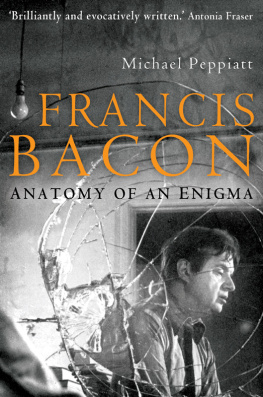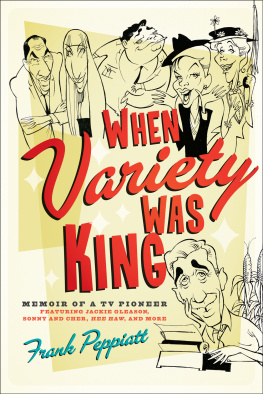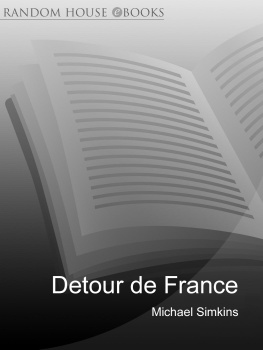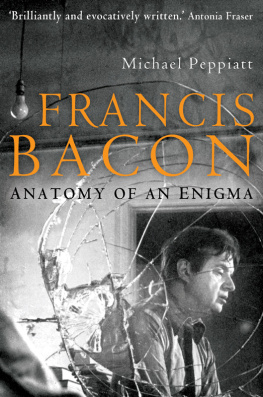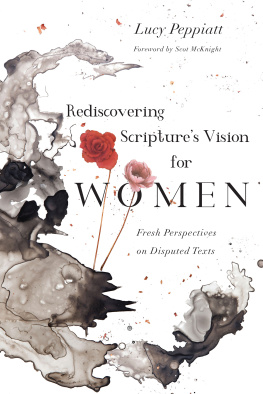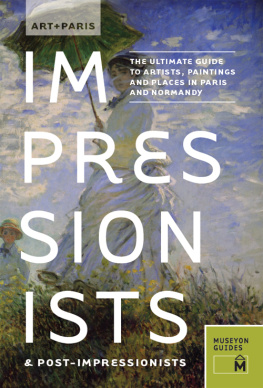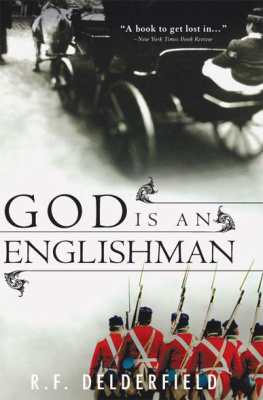Michael Peppiatt - The Existential Englishman: Paris Among the Artists
Here you can read online Michael Peppiatt - The Existential Englishman: Paris Among the Artists full text of the book (entire story) in english for free. Download pdf and epub, get meaning, cover and reviews about this ebook. year: 2019, publisher: Bloomsbury Publishing, genre: Detective and thriller. Description of the work, (preface) as well as reviews are available. Best literature library LitArk.com created for fans of good reading and offers a wide selection of genres:
Romance novel
Science fiction
Adventure
Detective
Science
History
Home and family
Prose
Art
Politics
Computer
Non-fiction
Religion
Business
Children
Humor
Choose a favorite category and find really read worthwhile books. Enjoy immersion in the world of imagination, feel the emotions of the characters or learn something new for yourself, make an fascinating discovery.

- Book:The Existential Englishman: Paris Among the Artists
- Author:
- Publisher:Bloomsbury Publishing
- Genre:
- Year:2019
- Rating:3 / 5
- Favourites:Add to favourites
- Your mark:
- 60
- 1
- 2
- 3
- 4
- 5
The Existential Englishman: Paris Among the Artists: summary, description and annotation
We offer to read an annotation, description, summary or preface (depends on what the author of the book "The Existential Englishman: Paris Among the Artists" wrote himself). If you haven't found the necessary information about the book — write in the comments, we will try to find it.
The Existential Englishman: Paris Among the Artists — read online for free the complete book (whole text) full work
Below is the text of the book, divided by pages. System saving the place of the last page read, allows you to conveniently read the book "The Existential Englishman: Paris Among the Artists" online for free, without having to search again every time where you left off. Put a bookmark, and you can go to the page where you finished reading at any time.
Font size:
Interval:
Bookmark:


Contents
The turquoise lamps flicker and dim, or perhaps my eyes are playing tricks on me after a days tenacious reading in the Bibliothque Mazarine. I love this place so much that even if I werent deep into research on seventeenth-century life in Paris I would come here simply to watch all the faces bent intently over manuscripts and listen to the concentrated hum of so many minds communing with the past. Theres also an oddly erotic note to the tense, hushed atmosphere, but even when your gaze doesnt cross that of some raven-haired beauty framed in soft light at a distant table, its a unique privilege to be sitting in this lofty, book-lined space founded by Cardinal Mazarin in 1643 and without contest the most venerable, elegant library in Paris.
For a handful of euros, my readers card allows me to come and go as I please to the Mazarine throughout the year. As a young man finding his way Marcel Proust worked here fitfully as a librarian, and next door, under the golden-ribbed dome of this exalted institution, Frances academicians, its immortels, meet to discuss and defend the purity of the French language. Every time I cross the Pont des Arts and contemplate the extraordinary harmony and grace of Louis Le Vaus building in my eyes, the architectural focus of the whole Left Bank I am transposed to another realm.
I have worked hard today, and before I go home I want to wind down by wandering through the streets for an hour or so. I start walking back over the bridge, thinking I might cut through the Louvre towards the Marais. But a wind whips icily off the darkening back of the Seine as it plunges towards the sea, so I retreat and head instinctively towards the bright lights and human warmth of Saint-Germain-des-Prs.
Dusk is falling fast on rue de Seine, and the art galleries and bookshops never look so seductive as when, on a bitter winter evening, their glittering displays of culture are about to be shuttered off for the night. The smell of roast chestnuts wafts across rue Jacques Callot and Im tempted to buy some in a paper twist and stop off for a draught beer at La Palette, where a few art-world people I know are bound to have gathered in the cosy back room. Then at the bar I espy a dodgy art dealer holding forth to a couple of unsuccessful artists Ive been avoiding for years, and suddenly the idea of a large glass of white Burgundy at Caf de Flore becomes more appealing.
I pass by the Deux Magots and note superciliously how thronged with tourists it seems, sitting where great writers once sat and even wrote their books. Then I pause reverentially at the crossroads of Saint-Germain, the crossroads of civilisation, or certainly the cradle of what interests me most in modern literature and art, even if those hallowed names, from Joyce, Picasso and Giacometti to Breton, Sartre and Beckett, might not mean so much any more to the crowds of attractive young people milling around the boutiques along the boulevard. At Caf de Flore I push back the tightly wedged door and savour the first rush of its wine-scented warmth, scanning the crowd to see if there is anyone I want to greet. No old friends are in tonight, so I shake hands with a couple of waiters and acquaintances, then climb the stairs to the clubby, wood-panelled room on the first floor and settle down at my favourite table.
After the first glass of wine I begin to relax, as if Id walked through a wall into another, calmer dimension. The working day has faded perceptibly into evening, and I reflect on what other pleasures might be at hand. With my wife travelling abroad all week, Id be glad to have a light supper here rather than face the snacks I wolf alone off the kitchen counter at home. Meanwhile, the terrace of Brasserie Lipp, ringed round with golden lights and rosy patio heaters, glows invitingly on the pavement opposite. I can almost hear the hubbub of elegant Parisians inside, nonchalantly relinquishing their haughty chic to put away a hearty meal. Once I start musing on the relative merits of Lipps entrecte with crisp frites and its tender cassoulet, washed down with draughts of the house Bordeaux, the decision is quickly made. I pause only to pick up a copy of Le Monde from the kiosk outside, then realise, as I slip into a seat at the centre of the bustling brasserie, that Ill barely glance at the headlines once the spectacle here begins to unfold.
All Paris is already filing in, the rising starlet and the ancient pop star, the notorious duo of decorator queens, the august men of letters, the lite lawyers and society doctors courting wealthy widows, the scandal-dogged politicians with their reproving wives or hard-eyed mistresses. The new episode of nightly drama, mercifully closer to farce than to tragedy, is under way. Some factions amongst the diners fall into each others arms while others pointedly cold-shoulder former partners or lovers, initiating new alliances as they eat. Meanwhile, like a conductor who can no longer keep to the podium, Lipps matre d wafts grandly through the melee, greeting the favoured few unctuously while hissing orders to the squad of white-aproned garons following him round.
Ive seen it all before, in numerous permutations, with once-famous participants who now exist at most as footnotes to eras long bygone. But somehow the familiarity is part of the attraction, and there is always an unexpected element, a sudden spat between client and waiter or an American heiress in dark glasses newly squired by a famous fashion gay, to offset the round of outrageous gossip and intimate exchange. I roll the last glass of claret round my tongue and watch every antic from my ringside seat, avidly but discreetly, since the whole charade can be closely followed in the huge mirrors that line the walls.
At that moment, as I choose a fine-spun Armagnac to cap my meal, I know why I spent more than half my adult life here and why, after an interim of twenty full and happy years in London, I decided to come back and live in Paris again

The book that follows describes my lifelong attachment to this bewitching, temperamental, exasperating city and the deep love-hate relationship that binds me to it. It charts my faltering progress in Paris from 1966 onwards as an arts journalist, writer, editor and, briefly, magazine owner and publisher, blending my personal experience of the citys differing facets and moods with sketches of the memorable people I have known here as well as insights into the secret places in this ancient capital that fascinate me most.
But my story, my confession, derives essentially from the interaction of person and place, that constant and unpredictable osmosis, and the complex ways each influences the other. Paris undoubtedly formed me, changing my outlook and moulding my reactions: my awareness of history and the arts, my relationships with other people or, perhaps above all, the sense I have of my own identity, which would have been fundamentally different if I had spent those decades elsewhere. Dusk seen from a bridge over the Seine, for instance, is a far cry from the same early evening experienced on the Embankment or indeed watched from a skyscraper on Lake Shore Drive.
You reflect and become the city just as the city reflects and becomes you. You are caught in a constant exchange which alters your thoughts and emotions in unforeseen ways because your relationship, particularly with a place as deeply layered and many-sided as Paris, is not just one relationship: it is every kind of relationship, because the city constantly encircles you, embracing and rejecting you without warning, revealing itself as it reveals you, mirroring you, remembering you, mimicking and mocking you, just as you might mimic and mock its peculiarities and pretensions when you escape elsewhere as if fleeing a possessive spouse and enjoy the illusion that for a moment you are beyond its tentacular grasp.
Font size:
Interval:
Bookmark:
Similar books «The Existential Englishman: Paris Among the Artists»
Look at similar books to The Existential Englishman: Paris Among the Artists. We have selected literature similar in name and meaning in the hope of providing readers with more options to find new, interesting, not yet read works.
Discussion, reviews of the book The Existential Englishman: Paris Among the Artists and just readers' own opinions. Leave your comments, write what you think about the work, its meaning or the main characters. Specify what exactly you liked and what you didn't like, and why you think so.

